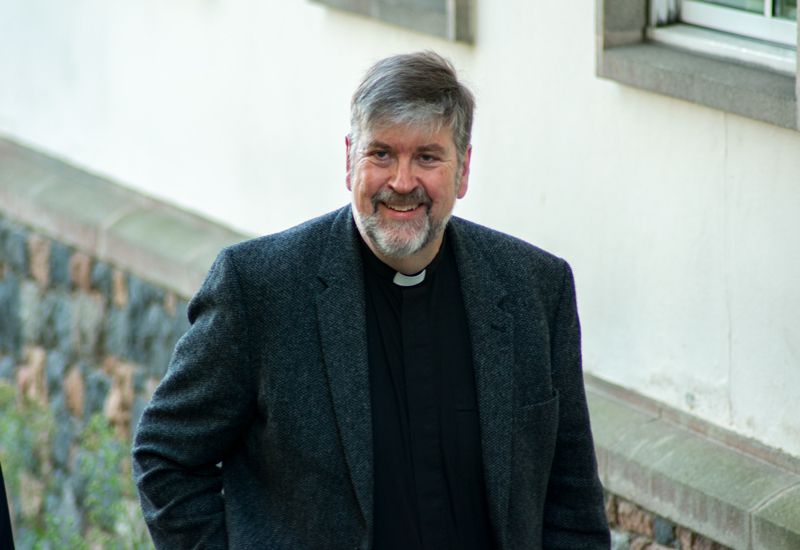


The cast of the Christmas story is huge: wise men and shepherds, the inn keeper, King Herod and his advisers.
Oh, and don’t forget the animals: the donkey that brought Mary and Joseph from Nazareth to Bethlehem, the sheep on the hillside who saw the exuberance of the heavenly host, the camels that brought the wise men to Bethlehem, and the animals in whose stable Jesus was born.
What did they remember? Did they remember that night in Bethlehem when Jesus ministry of teaching and healing burst on to the scene thirty years later?
However, there is one person who was there at the beginning, and who witnessed Jesus' crucifixion.
Mary, Jesus' mother.
St Luke's account of the angel Gabriel telling Mary that she is to be the mother of God's son, and Mary's gracious acceptance of this role, is an integral part of the Christmas story.
A little while later, Mary travelled into the hill country to spend time with Elizabeth, an older relative, who is also pregnant. Elizabeth's son will grow to be John the Baptist, whose role is to prepare the people for the start of Jesus's public ministry.
Elizabeth recognises the significance of the baby whom Mary will bring to birth, saying, 'Blessed are you among women, and blessed is the fruit of your womb.' Elizabeth is the first to utter this acclamation, which has become a favourite Christian devotion.
Yet we are aware that this blessing is not all springtime. It will have its winter season. A sword of anguish will pierce Mary's heart. As Mary will cradle the baby at Bethlehem, so years later she will cradle Jesus at Golgotha after his crucifixion.
Suddenly the scene at Elizabeth's house moves into music. And what a song Mary sings!
We call this song the Magnificat, from the first word in the Latin translation. We also call it the Song of Mary. It is said or sung daily in evening prayers. It is neither self-indulgent nor sentimental. Instead, we have an explosive celebration of the God who saves: the one who looks with favour on a humble servant, who does great things, whose name is holy. The God whose mercy is known by those who worship him, who shows his arm to be mighty, who scatters the proud and throws down the powerful, who lifts up the lowly, and leads the hungry to a banquet. The one who keeps his promise, whose name is holy, who does great things!
Mary unlocks the door to Christian joy. Mary shares her song with us, asks us to sing the Magnificat. She invites us to delight with her in the God who turns the world upside down, who loves us and promises eternal life. Whenever we might be tempted to think that the Christian faith is dull, the song of Mary tells us that the opposite is true. It is a song of exuberant joy, telling of life and light and hope.
Without such joy, Christianity is always in danger of becoming less than itself, falling into respectable dullness or mean-spirited fanaticism or wrangling or power games.
Mary reminds us that we can be as she is: the faithful disciple, always pointing to Jesus. She proclaims confident Christianity, rich with hope for this world and the next.
We live in a time when people ache for such a hope. In spite of the many, grievous, failings of the Church and its leaders, the task of Christians is to invite people to find hope in the liberating God who is the subject of Mary's song and the centre of Mary's life, the God whom we will find once again in the manger in Bethlehem.
Tim Barker
The Very Revd Tim Barker is the Dean of Guernsey